10 Most Popular Java Frameworks for Web Application Development
Java frameworks for web application development are the most favored option for several organizations - be it startups, SMEs, or large enterprises. Why? Because the allrounder Java provides numerous benefits for applications on Android, Machine Learning, Big Data, and Cloud Computing projects. And when it comes to web application development, it is undoubtedly the best choice for any level of developers.
There are now millions of websites, including some big brands like Amazon, Google, eBay, and LinkedIn that use Java technology.
There are numerous Java frameworks available in the market, but not all of them offer the best solution for every individual project. That is why developers need to choose the most suitable and the best Java frameworks for web application development projects. However, selecting the best option from the numerous choices can often get challenging and confusing – and this might affect the quality and functionality of the final product that you aim to deliver.
So, to help you out, we have listed out the best Java frameworks for web application development that are available in the market. So, without any further delay, let’s get into it!
Read more: Top 5 High-Performing Backend Frameworks in 2021-22
What Are Java Frameworks?
Before getting into the list of the best Java frameworks for web application development, let us first understand what exactly Java frameworks are.
In simple terms, it is a body of pre-written codes that act as a skeleton or template that a developer can use and reuse by filling in the required codes to build an application. This reuse of frameworks allows developers to design their custom software development without the manual challenge of programming every line of code from scratch.
Read more: Top 5 Reasons Why Your Organization Needs Custom Software Development!
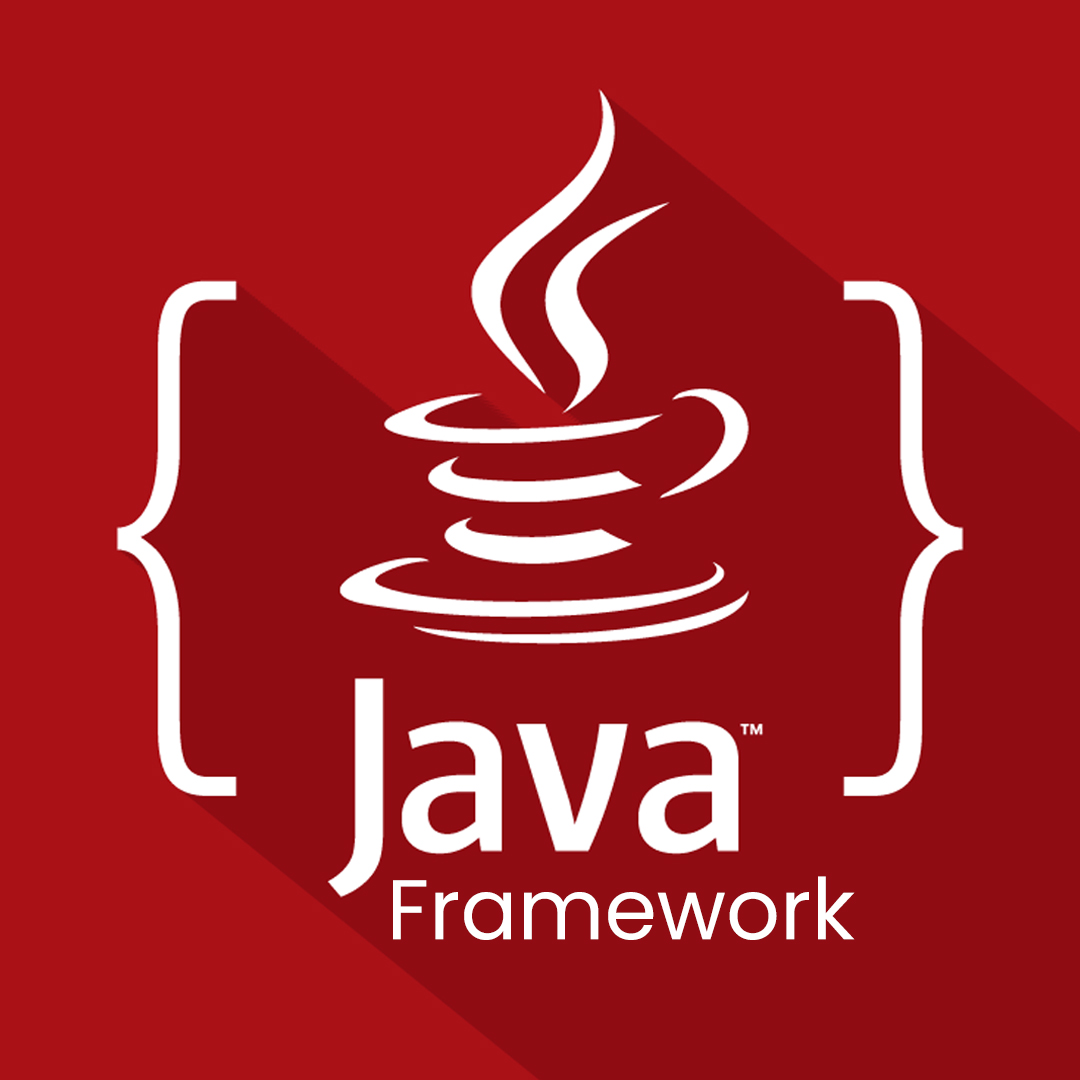
As the name suggests, Java frameworks are specific to the programming language Java. They include predefined functions and classes that can be used to input, process, and handle multiple hardware devices, and interact with the appropriate system software. Their impact on the software depends on the type of framework used, the developer’s skill set, their objectives, and their preferences. And this is where the importance of choosing the right option from the many Java frameworks for web application development comes into play. The right framework will help you get accurate and consistent results.
So, now let’s find out which are the best options available in the market.
Top 10 Java Frameworks for Web Application Development
1. Spring
Spring is a lightweight, powerful, and popular framework that makes Java easier, quicker, and safer to use. It is often preferred over other Java frameworks by developers due to the speed, simplicity, and productivity it offers to build enterprise-level web applications with complete ease.
Key features:

- Using the platform’s comprehensive and flexible third-party libraries you can develop different types of web applications
- Spring offers a lightweight container that can be triggered even without a web server or an application server
- It also offers easy testability and backward compatibility of a web application development project
- Spring supports JDBC which enhances productivity and reduces errors as much as possible
- The Java framework supports modularity, and both annotation & XML-based configuration
2. Grails
It is a full-stack dynamic Java framework that is formed on the MVC design pattern. It is easy to learn and is one of the most suitable Java frameworks for beginners. Also, it is an object-oriented language that can help improve developer productivity. Grails is written in Groovy and it can run on the Java platform. Also, it is perfectly compatible with Java syntax.
Key Features:
- It is an object-oriented language and is ideal for rapid development
- Configuration features are dynamic, and therefore there is no need to restart the server
- This Java framework comes with built-in support for RESTful APIs
- You can mix Java and Groovy using Grails

3. Hibernate
It is a stable ORM Java framework that can easily interact with any other database. This feature offers convenience when working with multiple databases. Hibernate offers numerous powerful APIs and useful tools like Mapping Editor, Wizards, and Reverse Engineering. Several big brands including IBM, Platform, and Dell use Hibernate as one of their preferred Java frameworks.
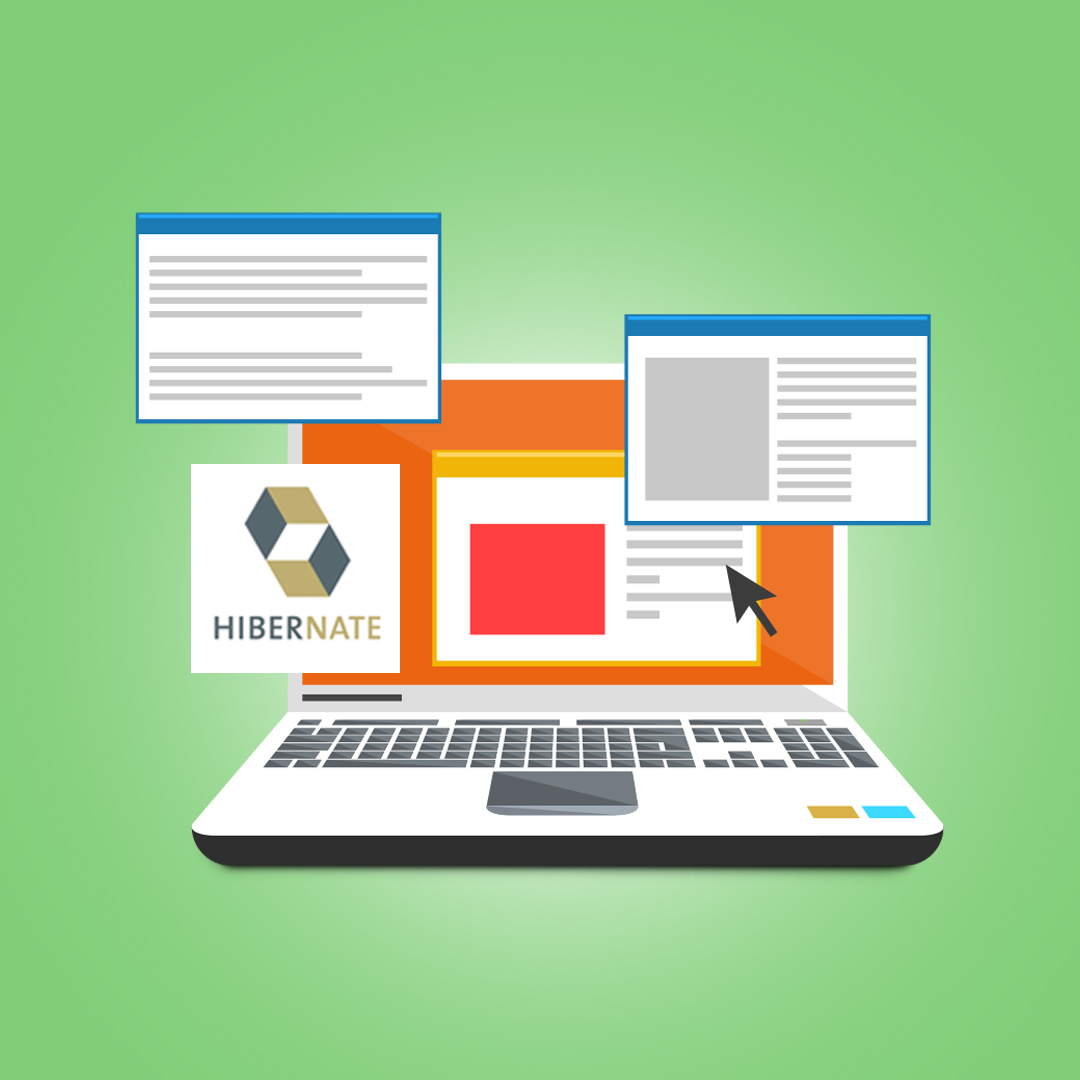
Key features:
- It is light-weight and easy to configure, modify, and scale-up
- Offers complex data manipulation options with less coding
- It can be used for RDBMS as well as for the NoSQL database
- It offers command-line tools and IDE plugins to make your experience pleasant
4. Google Web Toolkit (GWT)
It is another popular option among the best Java frameworks for web application development for developing and optimizing complex browser-based apps. It is used for the productive development of high-performance complex web applications. Another remarkable feature of GWT is that it converts Java code into JavaScript code. Popular Google applications like AdWords and AdSense are written using this Java framework.
Key features:
- It is an open-source Java framework and is extremely developer-friendly
- You can easily develop beautiful interfaces without having any knowledge of front-end scripting languages
- You can build optimized web applications that are easy to debug via effective software quality assurance services
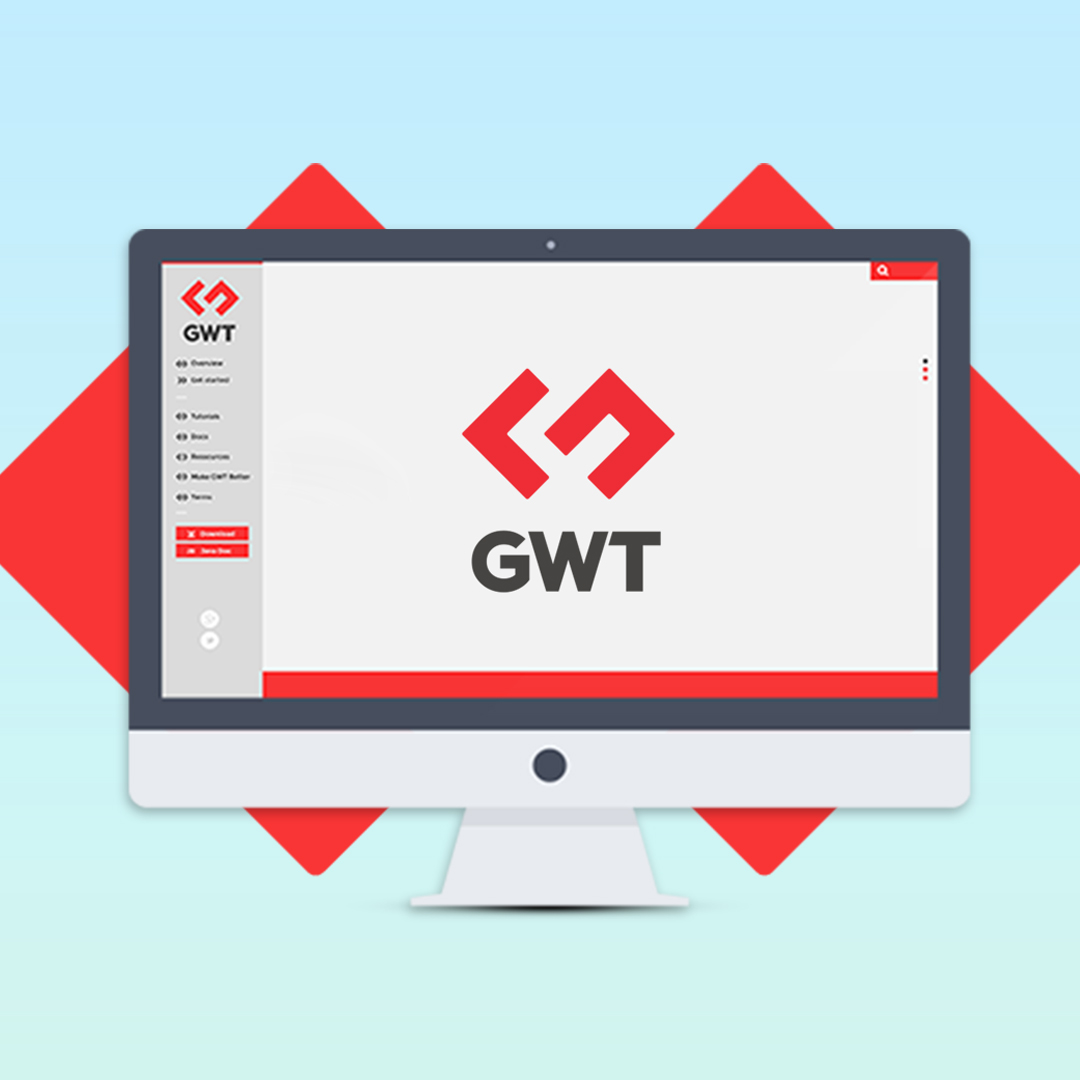
- It can be used to compile the Java source code into JavaScript files that can run on major browsers
5. Struts
It is an open-source MVC framework that can be used for developing modern enterprise-level web apps that support convention over configuration and decrease overall development time. This Java framework comes with plugins to support AJAX, REST, and JSON. It can also be easily integrated with other Java frameworks like Hibernate and Spring.
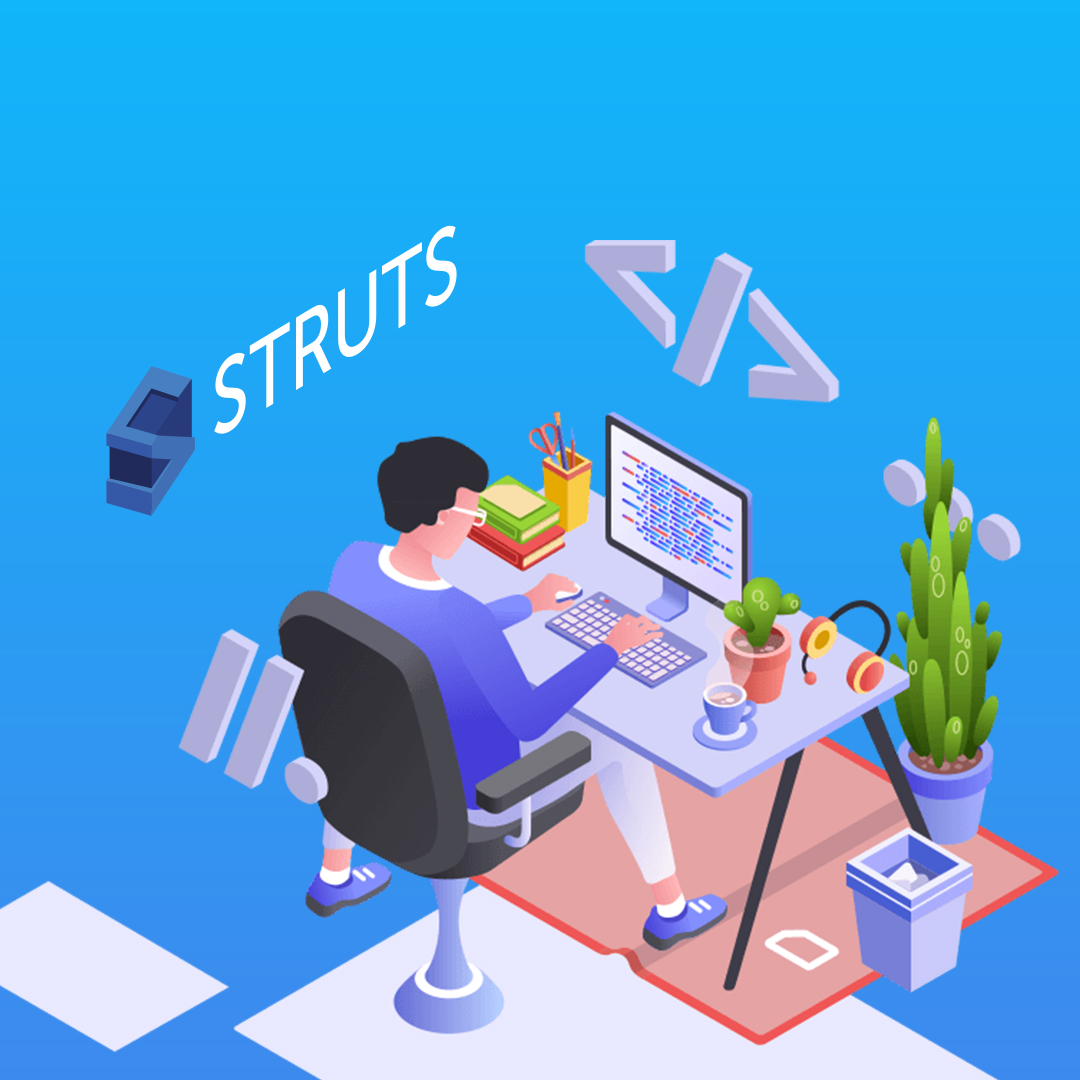
Key features:
- Beginner-friendly and super flexible
- It is based on the MVC design pattern and is highly reliable
- Simplifies development tasks with creative themes and templates
- Offers extended capabilities for complex development
6. Java Server Faces (JSF)
It is a free web application development framework maintained by Oracle technology and is quite similar to the Struts Java framework. The framework simplifies the development of UIs for server-side apps by assembling reusable UI components on a page. JSF is a component-based MVC framework that encompasses several front-end technologies and focuses more on the presentation layer. This feature enables web developers to build attractive UIs with simple drag and drop features.
Key features:
- Offers diverse libraries and reusable UI components
- Provides simple front-end development tools to be used without too much coding
- It can enrich the user experience by including Ajax events for method invocations and validations
- The Java framework offers an API to represent and manage UI components
- Instead of utilizing Java, JSF employs XML for view handling
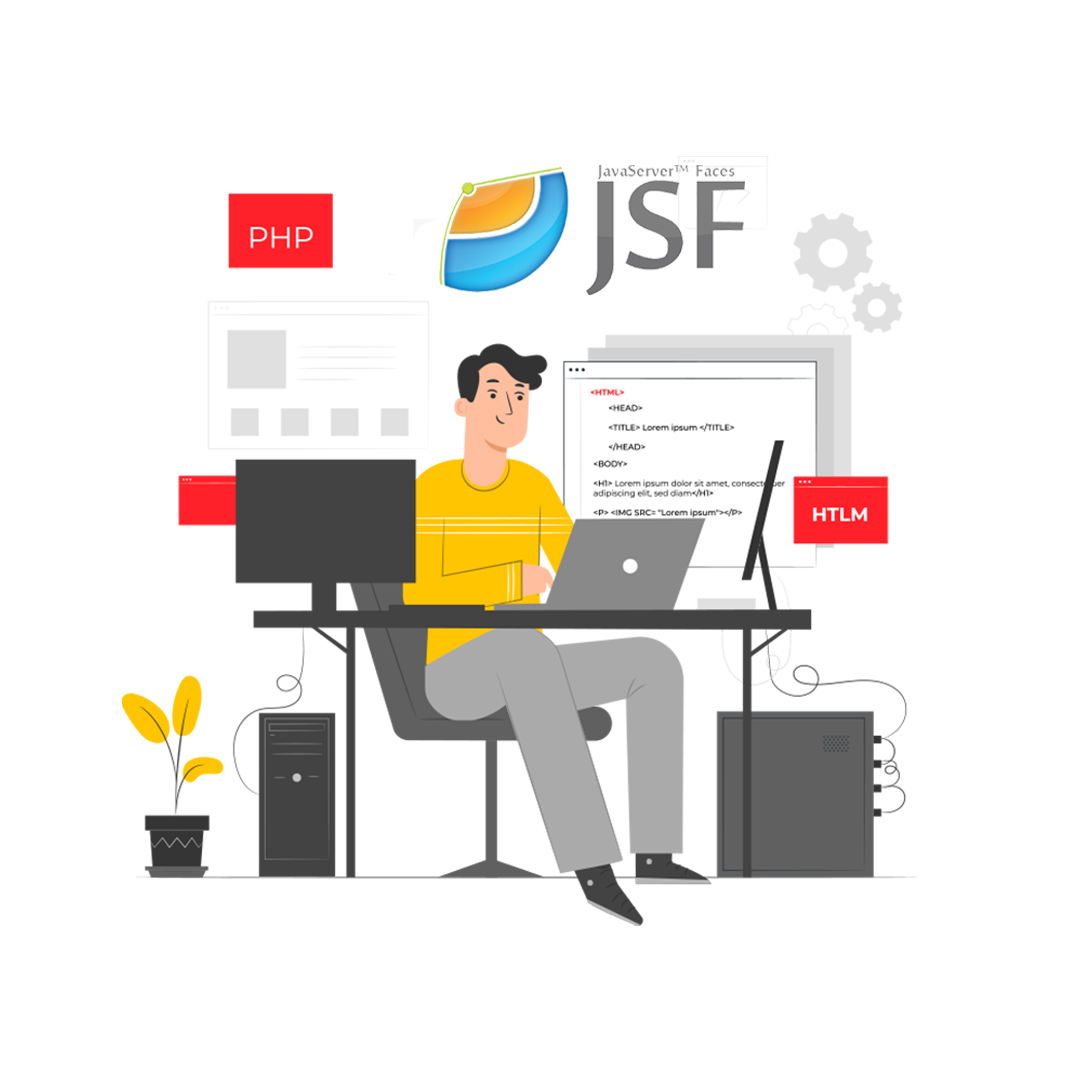
7. Vaadin
Among the best Java frameworks for web application development, Vaadin stands out due to its advanced functionalities that let you create dynamic and complex web apps using pre-designed UI components. It is an open-source backend framework that enables developers to write UI in plain Java without bothering with HTML, JS, and CSS. Vaadin Java framework offers a server-side architecture that helps developers to build dynamic and interactive interfaces for the web.
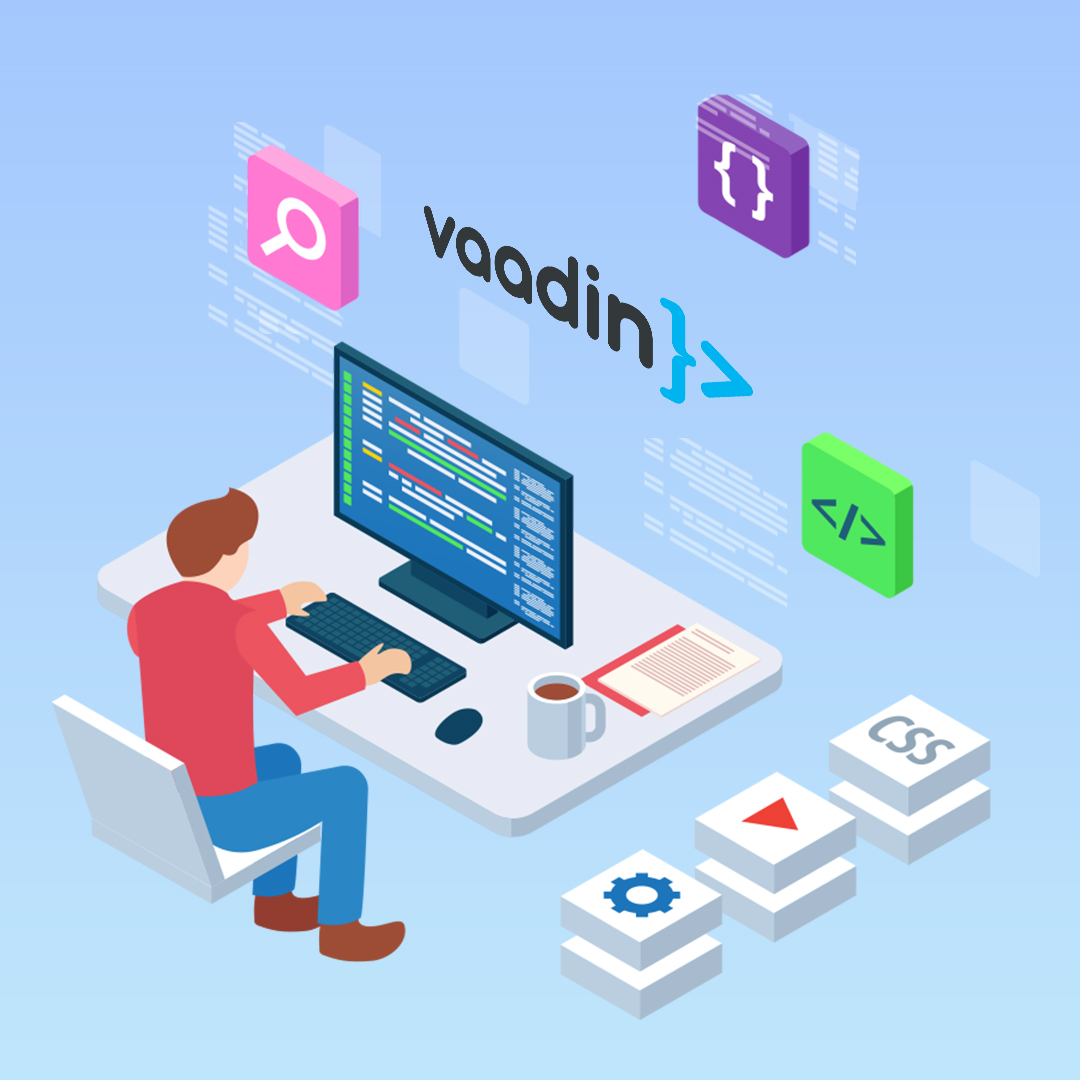
Key features:
- The framework offers several components and different listeners
- It is built on the Web Components standards
- It enables the automation of client-server communication and routing
- It is a Java framework that offers high developer productivity and fast development
8. Apache Hadoop
Although Apache Hadoop is not a full-stack Java framework, it offers a software framework that functions on the MapReduce programming model. These tools can handle large volumes of data (Big Data), manage, analyze and process them to deliver quicker and more efficient results.
Key features:
- Helps in distributed data storage and processing utilizing the master-slave design pattern
- The Hadoop Distributed File System (HDFS) layer of the master node has the data node.
- The HDFS layer of this Java framework splits the files into sets of blocks and these are replicated across the cluster
- Easily scalable and offers faster data processing
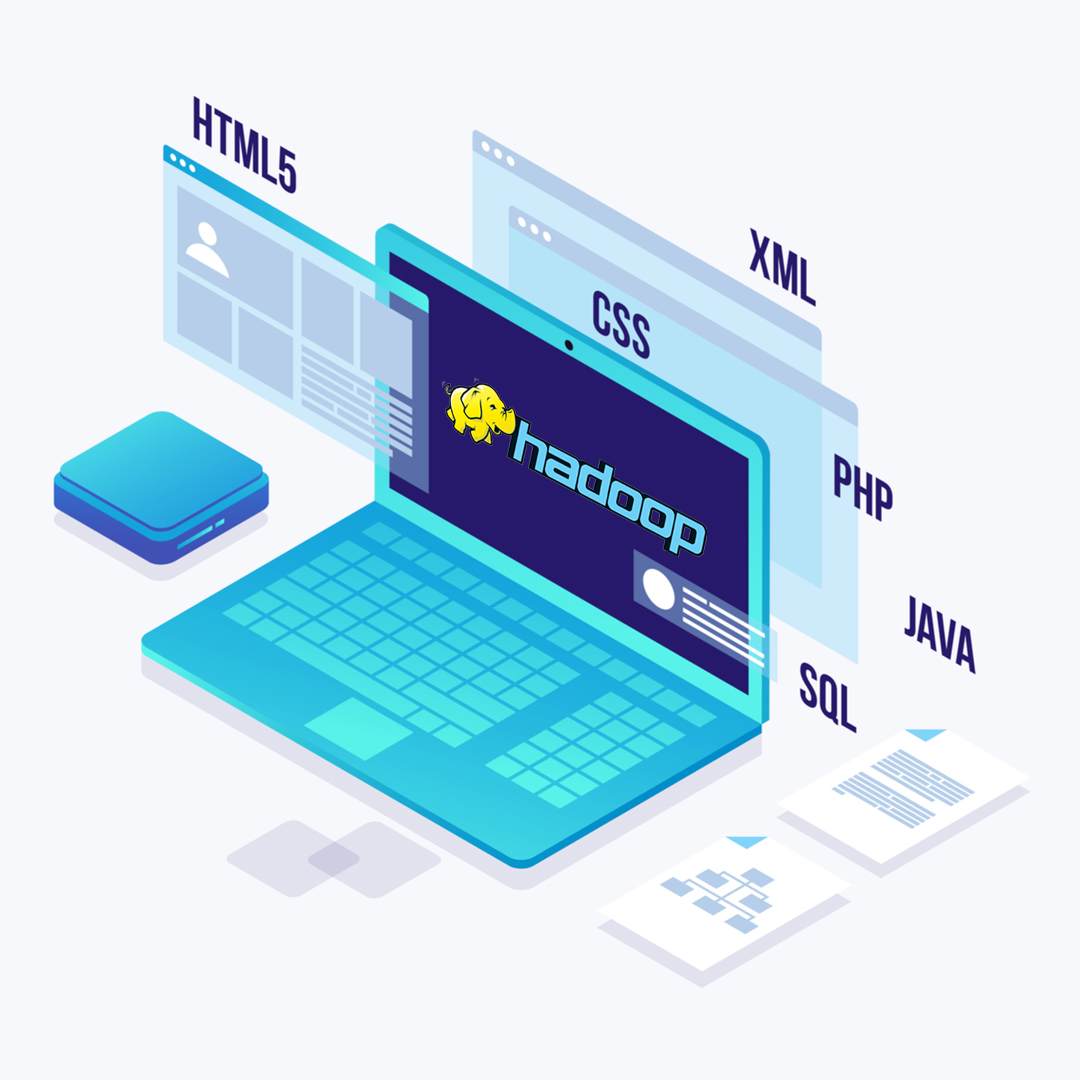
9. Play
It is a unique type of framework when compared to other Java frameworks for web application development. It is based on the web-friendly, stateless, and lightweight architecture, the MVC pattern. It offers reduced resource consumption for a highly scalable modern web and mobile application development.

Key features:
- Asynchronous processing ensures high performance
- The reactive principles of the framework will improve the productivity of the developer
- The Java framework offers simple and quick reload for any changes in the configuration
- Most errors are caught during the compilation time and thus saves a lot of mistakes early in the software development life cycle.
10. Dropwizard
It is a lightweight Java framework that offers advanced support for complex configurations and lets you complete your app in the quickest way possible. It is a unique framework with highly useful integrated libraries like Guava, Jetty, Jersey, Metrics, and Jackson for all the security, configurations, and performance-related tasks. Any beginner programmer can develop high-performance RESTful web apps easily with the Dropwizard Java framework.
Key features:
· Supports open sources and independent libraries
· Enables quick project bootstrap and simplifies rapid prototyping performance
· It is easy to set up and is extremely beginner-friendly
· Helps you build high performance, reliable and stable web applications
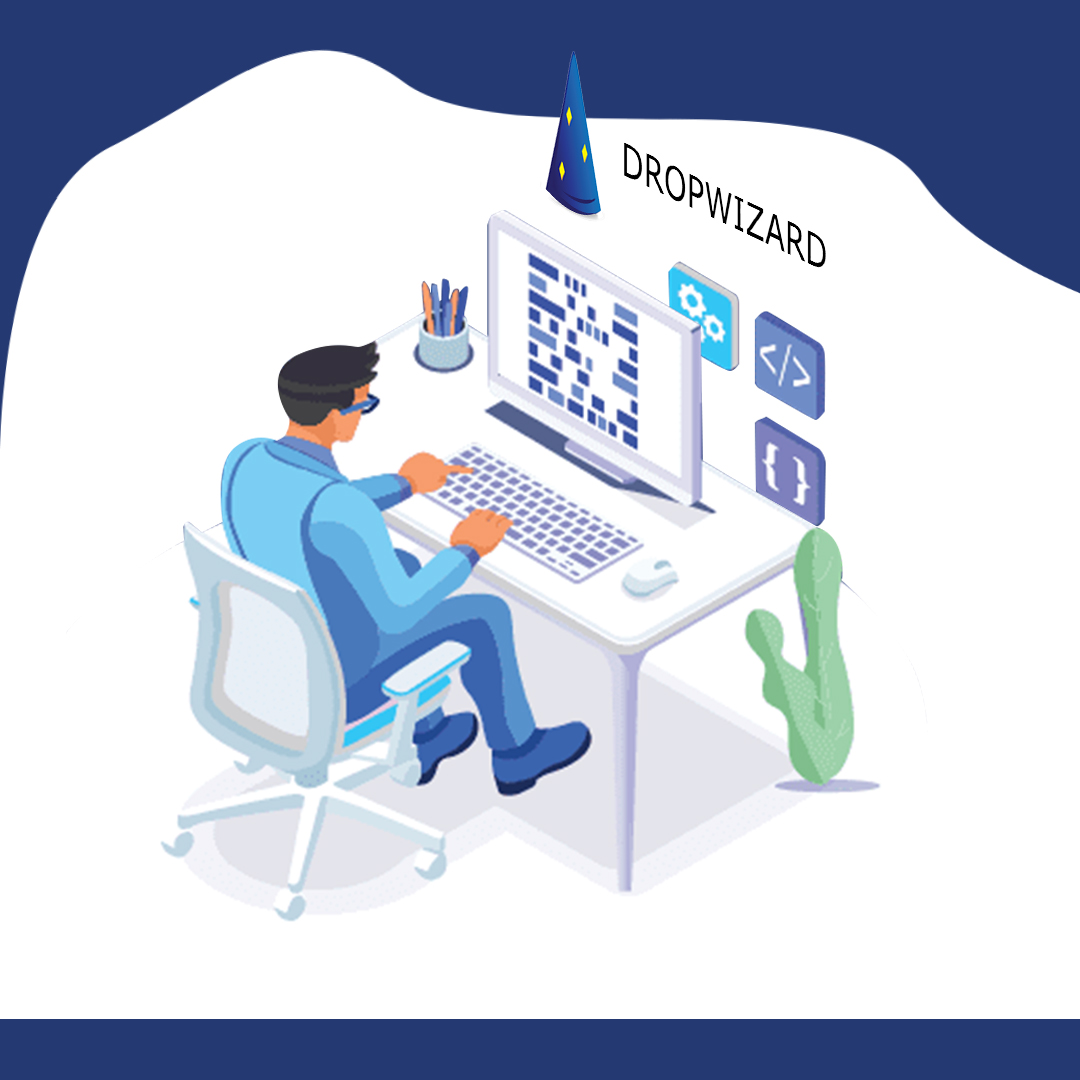
Final Words
To develop amazing multi-featured web applications, you can choose any of the Java frameworks for web application development mentioned above. The right Java framework not only will support you in meeting your unique business requirements but also give you a special level of flexibility with high performance and security.
Using appropriate Java frameworks will make the web development process more streamlined and efficient. However, to achieve that it is also necessary to effectively use the features and functionalities of the selected framework. This will become possible only with the help of experienced Java developers or a team of custom software developers with expertise in Java frameworks.
Read more: The Most Prominent Web Development Trends That Dominate in 2021
If you need further assistance and guidance regarding web app development or other related services like UI UX services, feel free to contact the experts at Bridge Global. Our experienced developers can help you find the right solutions for all your business objectives and goals.


